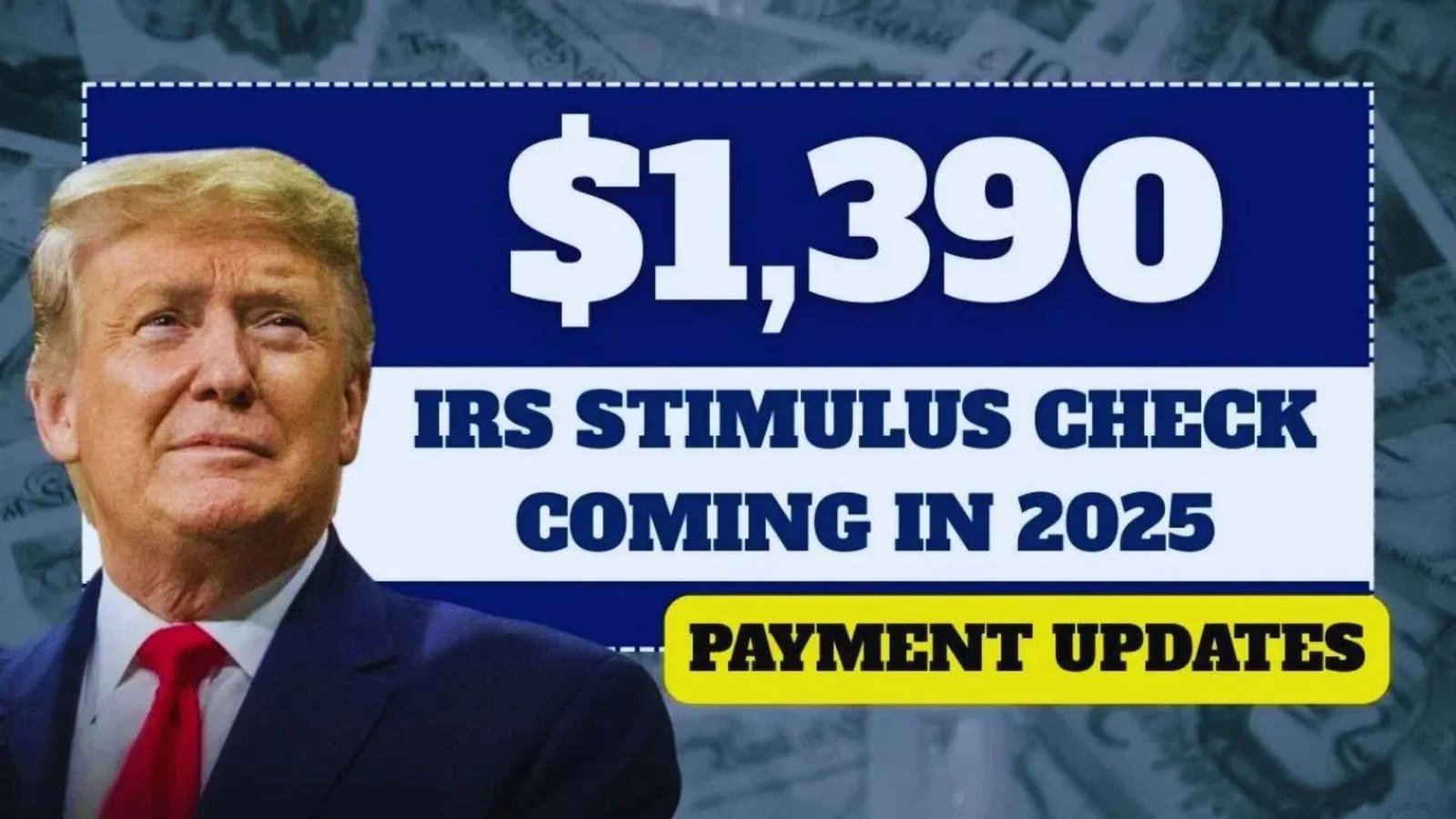The IRS relief payment is a rumored one-time stimulus check of $1,390 aimed at easing financial burdens for millions. Designed to combat rising living costs, it targets low- and middle-income households. But here’s the twist: some sources claim it’s confirmed, while others say it’s just a rumor. Let’s dig deeper.
Why the Buzz Around This Payment?
Social media is abuzz with claims of a 2025 stimulus check, but conflicting reports keep the suspense alive. Is it tied to past economic impact payments or a new initiative? The uncertainty makes this payment a hot topic for anyone tracking IRS updates.
The History of Stimulus Checks in the U.S.
Stimulus checks aren’t new. They began during the 2008 Great Recession, with payments up to $1,200. The CARES Act in 2020 delivered $1,200 per adult, followed by $600 and $1,400 rounds under the COVID-related Tax Relief Act and American Rescue Plan. Each aimed to cushion economic blows. Could this $1,390 payment be the next chapter?
A Surprising Connection to Past Relief
Here’s a shocker: the $1,390 figure might stem from unclaimed Recovery Rebate Credits from 2021, not a new program. The IRS identified taxpayers who missed out, sparking rumors of a fresh payout.
Why This Payment Matters in 2025
With inflation squeezing budgets, a $1,390 stimulus check could cover rent, groceries, or medical bills for many. It’s especially critical for Social Security, SSDI, SSI, and VA benefit recipients on fixed incomes. If real, this payment could be a lifeline amid soaring living costs.
Past Stimulus Payments vs. 2025 Rumor
| Stimulus Round | Amount (Individual) | Year | Purpose |
|---|---|---|---|
| CARES Act | $1,200 | 2020 | COVID relief |
| COVID Tax Relief | $600 | 2020 | Continued aid |
| American Rescue | $1,400 | 2021 | Recovery support |
| 2025 Rumor | $1,390 | 2025 | Inflation relief? |
How to Benefit From the $1,390 Payment
If the $1,390 relief payment is real, eligibility likely mirrors past criteria: income under $75,000 for singles, $150,000 for joint filers, or $112,500 for heads of household. Social Security recipients and non-filers may qualify but might need to update IRS records.
Steps to Secure Your Payment
- Check IRS Records: Ensure your bank details are updated on IRS.gov.
- File Taxes: Non-filers may need a 2023 or 2024 return by April 15, 2025.
- Avoid Scams: Stick to official IRS channels for updates.
Jaw-Dropping Facts About the 2025 Stimulus
- The $1,390 amount may reflect average cost-of-living increases.
- $2.4 billion in unclaimed 2021 Recovery Rebate Credits triggered recent payouts.
- No new stimulus legislation has been passed, casting doubt on the rumor.
- Direct deposit payments are fastest, followed by checks or EIP debit cards.
Eligibility for $1,390 Payment (If Confirmed)
| Group | Eligible? | Action Needed |
|---|---|---|
| Single, Income < $75,000 | Yes | Update bank info |
| Joint Filers < $150,000 | Yes | File recent taxes |
| Social Security/SSI/SSDI | Likely | Automatic for most |
| Non-Filers | Maybe | Use IRS Non-Filer Tool |
Insider Tips to Stay Ahead
- Monitor IRS.gov: Official updates trump social media rumors.
- Update Your Info: Avoid delays by checking your IRS online account.
- Beware of Scams: Fraudsters exploit stimulus check hype. Never share personal info via unsolicited calls.
- File Early: If you missed 2021 credits, file by April 15, 2025, to claim Recovery Rebate Credits.
FAQs: Unraveling the $1,390 Mystery
Q: Is the $1,390 stimulus check confirmed?
A: The IRS hasn’t officially announced a new $1,390 payment. Rumors may tie to unclaimed 2021 credits.
Q: When will payments start?
A: If real, expect mid-summer 2025, likely August, with direct deposits first.
Q: Do I need to apply?
A: Most won’t, but non-filers may need to register via the IRS Non-Filer Tool.
Q: Is it taxable?
A: No, stimulus payments are tax-free and won’t affect benefits like Medicaid or SNAP.
Conclusion: Will You Get the $1,390 Check?
The $1,390 IRS relief payment for August 2025 remains shrouded in mystery. While some sources claim it’s coming, others point to unclaimed Recovery Rebate Credits as the source of the buzz. Either way, staying informed could put cash in your pocket. Check IRS.gov, update your details, and share this with friends who might benefit. The truth is out there—will you be ready when it lands?

